- Home
- Sidney Sheldon
The Best Laid Plans Page 5
The Best Laid Plans Read online
Page 5
Chapter 5
The members of the board were gathered around the table in the conference room, sipping coffee and helping themselves to bagels and cream cheese, waiting for Leslie.
When she arrived, she said, "Sorry to keep you waiting, ladies and gentlemen. Henry sends his regards. "
Things had changed since the first board meeting Leslie had attended. The board had snubbed her then, and treated her as an interloper. But gradually, as Leslie had learned enough about the business to make valuable suggestions, she had won their respect. Now, as the meeting was about to begin, Leslie turned to Amy, who was serving coffee. "Amy, I would like you to stay for the meeting. "
Amy looked at her in surprise. "I'm afraid my shorthand isn't very good, Mrs. Chambers. Cynthia can do a better job of - "
"I don't want you to take minutes of the meeting. Just make a note of whatever resolutions we pass at the end. "
"Yes, ma'am. " Amy picked up a notebook and pen and sat in a chair against the wall.
Leslie turned to face the board. "We have a problem. Our contract with the pressmen's union is almost up. We've been negotiating for three months now, and we haven't been able to reach an agreement. We have to make a decision, and we have to make it fast. You've all seen the reports I sent you. I'd like to have your opinions. "
She looked at Gene Osborne, a partner in a local law firm.
"If you ask me, Leslie, I think they're getting too damn much already. Give them what they want now, and tomorrow they'll want more. "
Leslie nodded and looked at Aaron Drexel, the owner of a local department store. "Aaron?"
"I have to agree. There's a hell of a lot of feath-erbedding going on. If we give them something, we should get something in return. In my opinion, we can afford a strike, and they can't. "
The comments from the others were similar.
Leslie said, "I have to disagree with all of you. " They looked at her in surprise. "I think we should let them have what they want. "
"That's crazy. "
"They'll wind up owning the newspaper. "
"There won't be any stopping them. "
"You can't give in to them. "
Leslie let them speak. When they had finished, she said, "Joe Riley is a fair man. He believes in what he's asking for. "
Seated against the wall, Amy was following the discussion, astonished.
One of the women spoke up. "I'm surprised you're taking his side, Leslie. "
"I'm not taking anyone's side. I just think we have to be reasonable about this. Anyway, it's not my decision. Let's take a vote. " She turned to look at Amy. "This is what I want you to put in the record. "
"Yes, ma'am. "
Leslie turned back to the group. "All those opposed to the union demands, raise your hands. " Eleven hands went into the air. "Let the record show that I voted yes and that the rest of the committee has voted not to accept the union demands. "
Amy was writing in her notebook, a thoughtful expression on her face.
Leslie said, "Well, that's it then. " She rose. "If there's no further business. . . "
The others got to their feet.
"Thank you all for coming. " She watched them leave, then turned to Amy. "Would you type that up, please?"
"Right away, Mrs. Chambers. "
Leslie headed for her office.
The telephone call came a short time later.
"Mr. Riley is on line one," Amy said.
Leslie picked up the telephone. "Hello. "
"Joe Riley. I just wanted to thank you for what you tried to do. "
Leslie said, "I don't understand. . . "
"The board meeting. I heard what happened. "
Leslie said, "I'm surprised, Mr. Riley. That was a private meeting. "
Joe Riley chuckled. "Let's just say I have friends in low places. Anyway, I thought what you tried to do was great. Too bad it didn't work. "
There was a brief silence, then Leslie said slowly, "Mr. Riley. . . what if I could make it work?"
"What do you mean?"
"I have an idea. I'd rather not discuss it on the phone. Could we meet somewhere. . . discreetly?"
There was a pause. "Sure. Where did you have in mind?"
"Someplace where neither of us will be recognized. "
"What about meeting at the Golden Cup?"
"Right. I'll be there in an hour. "
"I'll see you. "
The Golden Cup was an infamous cafe in the seedier section of Phoenix, near the railroad tracks, an area police warned tourists to stay away from. Joe Riley was seated at a corner booth when Leslie walked in. He rose as she approached him.
"Thank you for being here," Leslie said. They sat down.
"I came because you said there might be a way for me to get my contract. "
"There is. I think the board is being stupid and shortsighted. I tried to talk to them, but they wouldn't listen. "
He nodded, "I know. You advised them to give us the new contract. "
"That's right. They don't realize how important you pressmen are to our newspaper. "
He was studying her, puzzled. "But if they voted you down, how can we. . . ?"
"The only reason they voted me down is that they're not taking your union seriously. If you want to avoid a long strike, and maybe the death of the paper, you have to show them you mean business. "
"How do you mean?"
Leslie said nervously, "What I'm telling you is very confidential, but it's the only way that you're going to get what you want. The problem is simple. They think you're bluffing. They don't believe you mean business. You have to show them that you do. Your contract is up this Friday at midnight. "
"Yes. . . "
"They'll expect you just to quietly walk out. " She leaned forward. "Don't!" He was listening intently. "Show them that they can't run the Star without you. Don't just go out like lambs. Do some damage. "
His eyes widened.
"I don't mean anything serious," Leslie said quickly. "Just enough to show them that you mean business. Cut a few cables, put a press or two out of commission. Let them learn that they need you to operate them. Everything can be repaired in a day or two, but meanwhile, you'll have scared them into their senses. They'll finally know what they're dealing with. "
Joe Riley sat there for a long time, studying Leslie. "You're a remarkable lady. "
"Not really. I thought it over, and I have a very simple choice. You can cause a little damage that can be easily corrected, and force the board to deal with you, or you can walk out quietly and resign yourself to a long strike that the paper may never recover from. All I care about is protecting the paper. "
A slow smile lit Riley's face. "Let me buy you a cup of coffee, Mrs. Chambers. "
"We're striking!"
Friday night, at one minute past midnight, under Joe Riley's direction, the pressmen attacked. They stripped parts from the machines, overturned tables full of equipment, and set two printing presses on fire. A guard who tried to stop them was badly beaten. The pressmen, who had started out merely to disable a few presses, got caught up in the fever of the excitement, and they became more and more destructive.
"Let's show the bastards that they can't shove us around!" one of the men cried.
"There's no paper without us!"
"We're the Star!"
Cheers went up. The men attacked harder. The pressroom was turning into a shambles.
In the midst of the wild excitement, floodlights suddenly flashed on from the four corners of the room. The men stopped, looking around in bewilderment. Near the doors, television cameras were recording the fiery scene and the destruction. Next to them were reporters from the Arizona Republic, the Phoenix Gazette, and several news services, covering the havoc. There were at least a dozen policemen and firemen.
Joe Riley was looking around in shock. How the hell had they all gotten here so fast? As the police started to close
in and the firemen turned on their hoses, the answer suddenly came to Riley, and he felt as though someone had kicked him in the stomach. Leslie Chambers had set him up! When these pictures of the destruction the union had caused got out, there would be no sympathy for them. Public opinion would turn against them. The bitch had planned this all along. . . .
The television pictures were aired within the hour, and the radio waves were filled with details of the wanton destruction. News services around the world printed the story, and they all carried the theme of the vicious employees who had turned on the hand that fed them. It was a public relations triumph for the Phoenix Star.
Leslie had prepared well. Earlier, she had secretly sent some of the Star's executives to Kansas to learn how to run the giant presses, and to teach nonunion employees cold-type production. Immediately after the sabotage incident, two other striking unions, the mailers and photoengravers, came to terms with the Star.
With the unions defeated, and the way open to modernize the paper's technology, profits began to soar. Overnight, productivity jumped 20 percent.
The morning after the strike, Amy was fired.
On a late Friday afternoon, two years from the date of their wedding, Henry had a touch of indigestion. By Saturday morning, it had become chest pains, and Leslie called for an ambulance to rush him to the hospital. On Sunday, Henry Chambers passed away.
He left his entire estate to Leslie.
The Monday after the funeral, Craig McAllister came to see Leslie. "I wanted to go over some legal matters with you, but if it's too soon - "
"No," Leslie said. "I'm all right. "
Henry's death had affected Leslie more than she had expected. He had been a dear, sweet man, and she had used him because she wanted him to help her get revenge against Oliver. And somehow, in Leslie's mind, Henry's death became another reason to destroy Oliver.
"What do you want to do with the Star?" McAllister asked. "I don't imagine you'll want to spend your time running it. "
"That's exactly what I intend to do. We're going to expand. "
Leslie sent for a copy of the Managing Editor, the trade magazine that lists newspaper brokers all over the United States. Leslie selected Dirks, Van Essen and Associates in Santa Fe, New Mexico.
"This is Mrs. Henry Chambers. I'm interested in acquiring another newspaper, and I wondered what might be available. . . "
It turned out to be the Sun in Hammond, Oregon.
"I'd like you to fly up there and take a look at it," Leslie told McAllister.
Two days later, McAllister telephoned Leslie. "You can forget about the Sun, Mrs. Chambers. "
"What's the problem?"
"The problem is that Hammond is a two-newspaper town. The daily circulation of the Sun is fifteen thousand. The other newspaper, the Hammond Chronicle, has a circulation of twenty-eight thousand, almost double. And the owner of the Sun is asking five million dollars. The deal doesn't make any sense. "
Leslie was thoughtful for a moment. "Wait for me," she said. "I'm on my way. "
Leslie spent the following two days examining the newspaper and studying its books.
"There's no way the Sun can compete with the Chronicle," McAllister assured her. "The Chronicle keeps growing. The Sun's circulation has gone down every year for the past five years. "
"I know," Leslie said. "I'm going to buy it. "
He looked at her in surprise. "You're going to what?"
"I'm going to buy it. "
The deal was completed in three days. The owner of the Sun was delighted to get rid of it. "I suckered the lady into making a deal," he crowed. "She paid me the full five million. "
Walt Meriwether, the owner of the Hammond Chronicle, came to call on Leslie.
"I understand you're my new competitor," he said genially.
Leslie nodded. "That's right. "
"If things don't work out here for you, maybe you'd be interested in selling the Sun to me. "
Leslie smiled. "And if things do work out, perhaps you'd be interested in selling the Chronicle to me. "
Meriwether laughed. "Sure. Lots of luck, Mrs. Chambers. "
When Meriwether got back to the Chronicle, he said confidently, "In six months, we're going to own the Sun. "
Leslie returned to Phoenix and talked to Lyle Bannister, the Star's managing editor. "You're going with me to Hammond, Oregon. I want you to run the newspaper there until it gets on its feet. "
"I talked to Mr. McAllister," Bannister said. "The paper has no feet. He said it's a disaster waiting to happen. "
She studied him a moment. "Humor me. "
In Oregon, Leslie called a staff meeting of the employees of the Sun.
"We're going to operate a little differently from now on," she informed them. "This is a two-newspaper town, and we're going to own them both. "
Derek Zornes, the managing editor of the Sun, said, "Excuse me, Mrs. Chambers. I'm not sure you understand the situation. Our circulation is way below the Chronicle's, and we're slipping every month. There's no way we can ever catch up to it. "
"We're not only going to catch up to it," Leslie assured him, "we're going to put the Chronicle out of business. "
The men in the room looked at one another and they all had the same thought: Females and amateurs should stay the hell out of the newspaper business.
"How do you plan to do that?" Zornes asked politely.
"Have you ever watched a bullfight?" Leslie asked.
He blinked. "A bullfight? No. . . "
"Well, when the bull rushes into the ring, the matador doesn't go for the kill right away. He bleeds the bull until it's weak enough to be killed. "
Zornes was trying not to laugh. "And we're going to bleed the Chronicle?"
"Exactly. "
"How are we going to do that?"
"Starting Monday, we're cutting the price of the Sun from thirty-five cents to twenty cents. We're cutting our advertising rates by thirty percent. Next week, we're starting a giveaway contest where our readers can win free trips all over the world. We'll begin publicizing the contest immediately. "
When the employees gathered later to discuss the meeting, the consensus was that their newspaper had been bought by a crazy woman.
The bleeding began, but it was the Sun that was being bled.
McAllister asked Leslie, "Do you have any idea how much money the Sun is losing?"
"I know exactly how much it's losing," Leslie said.
"How long do you plan to go on with this?"
"Until we win," Leslie said. "Don't worry. We will. "
But Leslie was worried. The losses were getting heavier every week. Circulation continued to dwindle, and advertisers' reactions to the rate reduction had been lukewarm.
"Your theory's not working," McAllister said. "We've got to cut our losses. I suppose you can keep pumping in money, but what's the point?"
The following week, the circulation stopped dropping.
It took eight weeks for the Sun to begin to rise.
The reduction in the price of the newspaper and in the cost of advertising was attractive, but what made the circulation of the Sun move up was the giveaway contest. It ran for twelve weeks, and entrants had to compete every week. The prizes were cruises to the South Seas and trips to London and Paris and Rio. As the prizes were handed out and publicized with front-page photographs of the winners, the circulation of the Sun began to explode.
"You took a hell of a gamble," Craig McAllister said grudgingly, "but it's working. "
"It wasn't a gamble," Leslie said. "People can't resist getting something for nothing. "
When Walt Meriwether was handed the latest circulation figures, he was furious. For the first time in years, the Sun was ahead of the Chronicle.
"All right," Meriwether said grimly. "Two can play that stupid game. I want you to cut our advertising rates and start some kind of contest. "
But it was too late. Eleven months after Leslie had bought the Sun, Walt Meriwether came to see her.
"I'm selling out," he said curtly. "Do you want to buy the Chronicle?"
"Yes. "
The day the contract for the Chronicle was signed, Leslie called in her staff.
"Starting Monday," she said, "we raise the price of the Sun, double our advertising rates, and stop the contest. "
One month later, Leslie said to Craig McAllister, "The Evening Standard in Detroit is up for sale. It owns a television station, too. I think we should make a deal. "
McAllister protested. "Mrs. Chambers, we don't know anything about television, and - "
"Then we'll have to learn, won't we?"
The empire Leslie needed was beginning to build.

 Windmills of the Gods
Windmills of the Gods After the Darkness
After the Darkness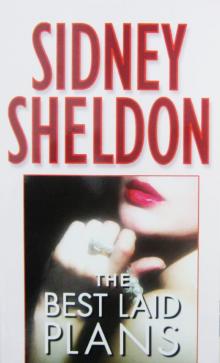 The Best Laid Plans
The Best Laid Plans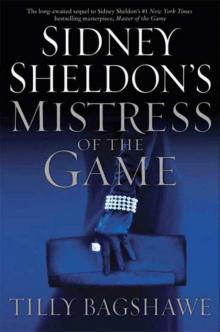 Mistress of the Game
Mistress of the Game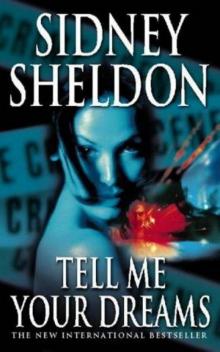 Tell Me Your Dreams
Tell Me Your Dreams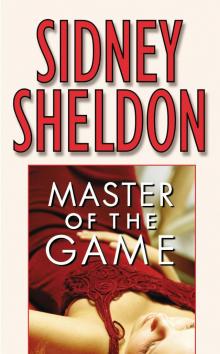 Master of the Game
Master of the Game Memories of Midnight
Memories of Midnight Are You Afraid of the Dark?
Are You Afraid of the Dark? Nothing Lasts Forever
Nothing Lasts Forever Rage of Angels
Rage of Angels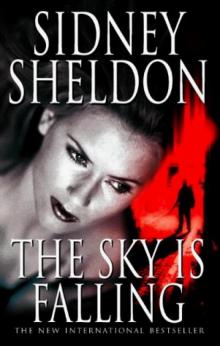 The Sky Is Falling
The Sky Is Falling The Sands of Time
The Sands of Time Morning, Noon and Night
Morning, Noon and Night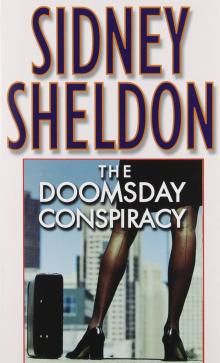 The Doomsday Conspiracy
The Doomsday Conspiracy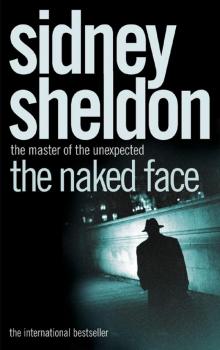 The Naked Face
The Naked Face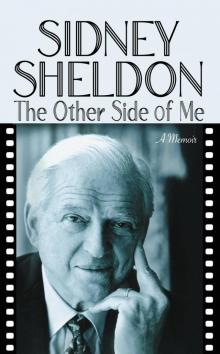 The Other Side of Me
The Other Side of Me Bloodline
Bloodline The Stars Shine Down
The Stars Shine Down The Other Side of Midnight
The Other Side of Midnight A Stranger in the Mirror
A Stranger in the Mirror Sidney Sheldon's Angel of the Dark
Sidney Sheldon's Angel of the Dark Sidney Sheldon's the Tides of Memory
Sidney Sheldon's the Tides of Memory The Phoenix
The Phoenix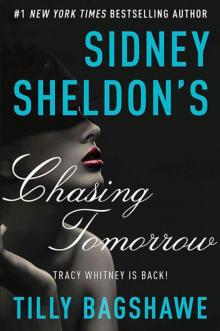 Sidney Sheldon's Chasing Tomorrow (Tracy Whitney)
Sidney Sheldon's Chasing Tomorrow (Tracy Whitney) Sidney Sheldon's After the Darkness
Sidney Sheldon's After the Darkness Sidney Sheldon's Reckless
Sidney Sheldon's Reckless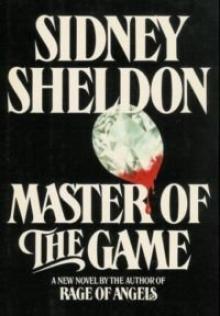 Master of the Game motg-1
Master of the Game motg-1 Sidney Sheldon's the Silent Widow
Sidney Sheldon's the Silent Widow Morning, Noon & Night
Morning, Noon & Night